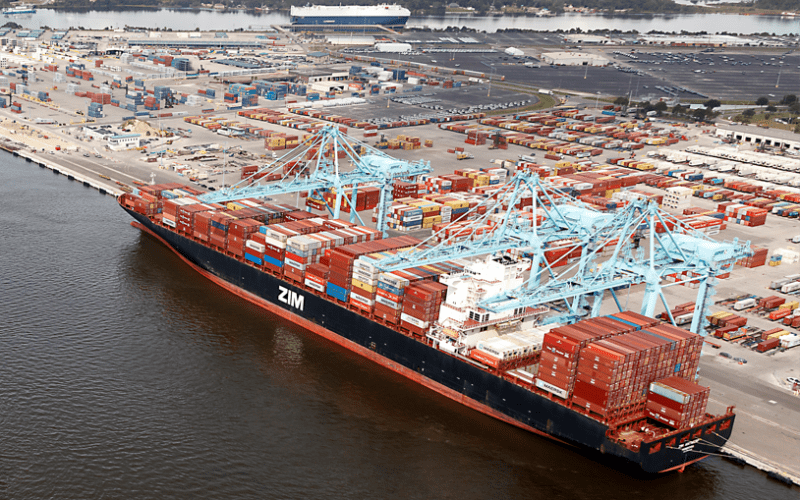(TALLAHASSEE, Fla.) — Florida’s 16 seaports experienced a new record high of 112.5 million tons of cargo received during 2022, a 6 percent increase over 2021, a newly released report from the Florida Seaport Transportation and Economic Development Council (FSTED) shows.
Further, Florida’s strong performance to answer supply chain demands by encouraging shippers to change shipping lanes and call on the Sunshine State’s ports has well-positioned Florida to gain an even larger market share over the next five years.
As the Seaport Mission Plan shows, strong investments in Florida’s 16 publicly owned seaports have well-positioned them as reliable and resilient, and ready to seize the opportunity to become a global hub by capturing an even larger share of international trade and related commercial activities.

“Florida seaports have been flexing their muscles, and taking a more aggressive approach to target maritime decision makers. We know the country’s 1970s-era supply chain is broken, so we’re looking beyond to share how Florida’s seaports are the gateway to the world,” said Michael Rubin, FSTED administrator and president and CEO of the Florida Ports Council.
Florida is a top maritime trade state and home to the world’s largest cruise ports. Cargo and cruise activities support 900,000 direct and indirect jobs, $117.6 billion in economic value and 13.3 percent of Florida’s gross domestic product (GDP).
Key 2022 figures from the Seaport Mission Plan show:
• TEUs (twenty-foot equivalent units): 4,310,054
• Container tons: 26,167,200
• Dry bulk tons: 22,426,786
• Liquid bulk tons: 54,899,124
• Break-bulk tons: 9,038,895
• Total tonnage: 112,532,005
• Vehicles: 631,157
• Passengers: 10,769,213
To build on Florida’s record high 2022 cargo, Florida’s port leaders will meet face-to-face with maritime decision makers during TPM2023 – the premier conference for international container shipping on Feb. 26-March 1 in Long Beach, Calif. These one-on-one conversations have played a key role in securing new shipping lines and increased cargo calling on Florida.
– Florida Seaport Transportation and Economic Development Council

